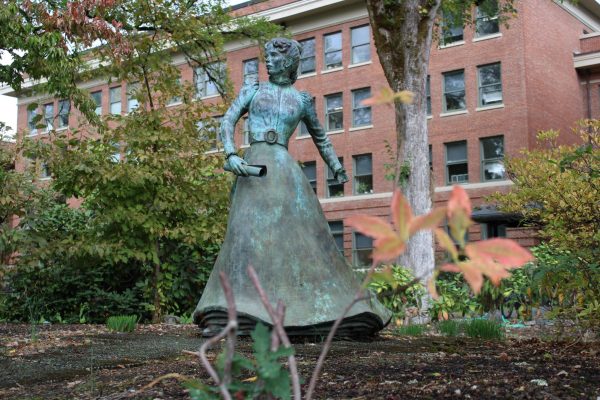Why do students not ask questions?
November 14, 2018
If a student has a question, they usually want an answer. However, many students refuse to ask questions. Why is that?
According to students at Oregon State University (OSU), asking questions can be very stressful. Sometimes people don’t understand what the professor just said, want clarification on what’s being taught or want some insight on future topics. There are many factors that lead up to students not asking questions. According to the Tenney School, one of the most common reasons why students don’t ask questions is because of fear of what peers think. If the student doesn’t feel comfortable in class or feels inferior to their classmates, fear of embarrassment will stop them from asking questions.
Another factor in asking questions is class size. When asked about why they wouldn’t ask a question, students said that if the class size was big, they were less likely to ask the professor. Students usually do not go to the professor when they have a question. Instead, they look around and ask their classmates. While the leading cause of not asking questions is peers, students will go to their peers to clear up misconceptions or problems before asking their professor.
“I do it all the time,” Jordynn Slater, a freshman at OSU, said. “My class is pretty big and so I usually just ask them.”
Students feel more comfortable asking their peers about questions than the professor. “I feel like sometimes when you ask the professor, it can make you feel nervous,” freshman Taylor Crockem explains. “My psychology class is huge, like 500 people, so I’m not going to sit there and ask a question when the people next to me are nodding their head […] and I can just ask them.”
When asked if there was a moment that the student felt disrespected for asking a question, Slater and Crockem said “yes.”
“I had that my very first time I had a question,” Slater said. “And I haven’t asked a question since [in that class].” Many students deal with the fear of asking questions and students say that if they are ridiculed for asking a question in one class, then it makes them less likely to ask a question in a different class.
On the other side, students are more willing to ask personal questions than scholarly questions. Students will ask questions to start a conversation, stop an awkward moment or make the recipient think about a topic. This comes from having a connection with the person they are speaking with and wanting to develop a relationship with the recipient.
“If it’s a smaller class and I’m more close to the professor, then I think I’d be more likely to ask,” Slater said.
Many students at OSU have unanswered questions that they are afraid to say out loud. The fear of peers, embarrassment and overall confusion can lead a question to remain unasked forever. For lots of students, asking a question requires a lot of confidence.
However, students who do ask questions are more confident and understand the material better than others. Stephanie Bozza, author of the article “How the Most Successful People Ask Questions,” states that people who ask questions are usually judged to be intellectual rather than dumb.
When it comes to education, Crockem reminds us that there is no ‘stupid’ question. “I feel like people don’t ask questions because they think their question is dumb,” Crockem said. “But no question is a dumb question.”
Sources:







